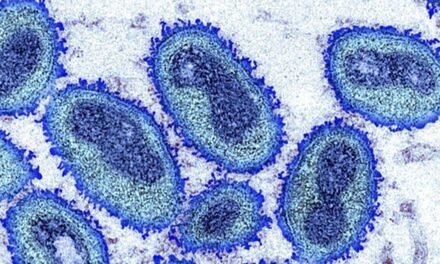December 29, 2024
Cases of whooping cough, also known as pertussis or the “100-day cough,” are climbing at unprecedented rates in Canada, with health officials raising alarms about the surge. Canadian authorities have reported 19,000 cases of pertussis so far this year, a staggering increase compared to the typical annual range of 1,000 to 3,000 cases, according to CTV News.
Dr. Theresa Tam, Canada’s chief public health officer, identified whooping cough as one of the nation’s biggest health concerns heading into 2025. During a recent briefing, she suggested that pandemic-related disruptions to routine childhood vaccination schedules may have contributed to the resurgence of this once-controlled disease.
“We’re seeing the ripple effects of missed vaccinations,” Dr. Tam said. “Ensuring that children and those in close contact with infants are up to date on their immunizations is critical to preventing further spread.”
A Nationally Monitored Threat
Whooping cough is classified as a “nationally notifiable disease” in Canada, with cases tracked through the Canadian Notifiable Disease Surveillance System. The system plays a key role in monitoring the transmission of infectious diseases across the country.
Despite the availability of a vaccine, pertussis remains highly contagious. It is characterized by severe coughing fits followed by a distinctive high-pitched “whoop” sound during inhalation. Though deaths from the disease are rare, they predominantly occur in infants who are too young to complete their vaccination schedule.
“Vaccinating pregnant women and ensuring caregivers are immunized are essential measures to protect newborns,” Dr. Tam emphasized.
Signs and Symptoms
The early symptoms of whooping cough mimic a common cold, with runny nose, mild fever, and mild coughing. However, within one to two weeks, symptoms escalate. Thick mucus builds up in the airways, triggering uncontrollable coughing fits.
In adolescents and adults, the characteristic “whoop” sound may be absent, making diagnosis more challenging. Instead, a persistent, hacking cough may be the only indicator of infection.
Preventing Further Spread
Before vaccines became widely available, pertussis was primarily a childhood disease. Today, it continues to affect children too young to be fully vaccinated and older individuals whose immunity has diminished over time.
Health officials are urging Canadians to ensure their vaccinations are current and to prioritize booster shots, especially for adults and adolescents who will be in close contact with infants.
As Canada battles this surge, Dr. Tam and other public health experts stress the importance of rebuilding trust in routine vaccinations disrupted during the pandemic. “Vaccination is our strongest line of defense against preventable diseases like pertussis,” Dr. Tam said.
For more information on vaccination schedules or symptoms of whooping cough, Canadians are encouraged to visit their local public health websites or consult their healthcare providers.












